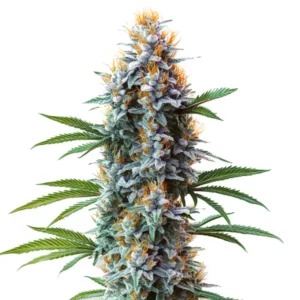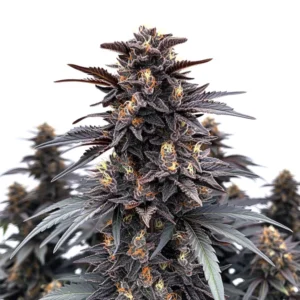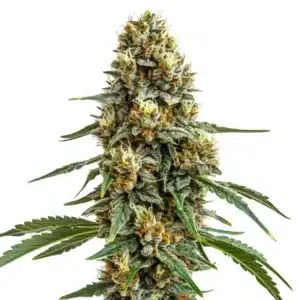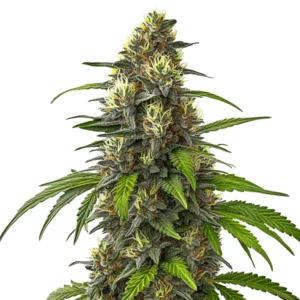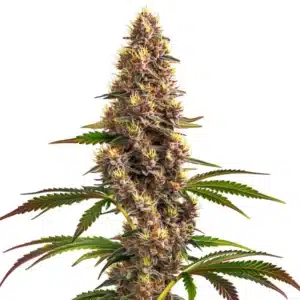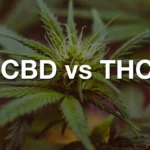
THC as a Muscle Relaxant
For those who struggle with muscle tension and spasms, finding a reliable solution can be life-changing. THC, the main psychoactive compound in cannabis, has emerged as a popular option for muscle relaxation. With its natural properties that help ease physical discomfort, THC is increasingly recognized as a muscle relaxant by both recreational and medical users. But how does it work, and what makes it an effective choice?
How THC Works as a Muscle Relaxant
To understand why THC is effective at relaxing muscles, we need to look at how it interacts with the body. THC binds to receptors in the endocannabinoid system, particularly CB1 receptors found in the brain and central nervous system. These interactions can help regulate pain, inflammation, and muscle control.
Recommended Strains
Blue Cheese
|
|
THC | 16% - 20% (Medium) |
|
|
Type | Feminized |
|
|
Yield | High |
|
|
Phenotype | 80% Indica / 20% Sativa |
Blue Amnesia Auto
|
|
THC | 17% - 18% (Medium) |
|
|
Type | Autoflowering |
|
|
Yield | Low |
|
|
Phenotype | 40% Indica / 60% Sativa |
The muscle-relaxing effects of THC occur because it helps to reduce the overactive signaling between nerves and muscles, which can lead to spasms. Additionally, it can improve overall comfort by lowering pain perception and promoting a sense of calmness. Let’s break this process down in more detail.
The Psychoactive Properties of THC
One of the most well-known effects of THC is its ability to alter perception and create a euphoric sensation. While this psychoactive effect is often sought after for recreational purposes, it also plays a role in muscle relaxation. THC’s ability to alter the perception of pain can help those with chronic conditions find relief from tightness and spasms.
Additionally, THC can influence dopamine levels in the brain, leading to improved mood and reduced stress. This reduction in stress can indirectly help muscles relax, as tension and anxiety are common contributors to muscle stiffness.
Muscle-Related Conditions Commonly Treated with THC
There are several muscle-related conditions where THC has shown promise. Conditions such as multiple sclerosis (MS), fibromyalgia, and chronic back pain often involve recurring muscle spasms and tightness. Patients with these conditions may benefit from THC’s relaxing properties.
Sports injuries, muscle cramps, and even post-exercise recovery are also scenarios where THC might help. Its anti-inflammatory properties can assist in reducing swelling, which further aids in muscle recovery and relaxation.
Promos & Deals
THC vs. CBD: What’s Better for Muscle Relaxation?
When discussing cannabis for muscle relaxation, another important cannabinoid often enters the conversation: CBD. Unlike THC, CBD is non-psychoactive but offers various therapeutic effects. So, which one is better for muscle relaxation?
Both cannabinoids interact with the endocannabinoid system, but they do so in different ways. While THC binds directly to CB1 receptors, CBD influences these receptors indirectly. This difference in action leads to varying effects on muscle relaxation and pain management.
Comparing the Immediate Effects of THC and CBD
THC tends to have quicker, more noticeable effects due to its direct binding to cannabinoid receptors. This is why many people feel a rapid sense of relaxation after consuming THC products. The psychoactive effects also contribute to pain relief and reduced muscle tension.
CBD, on the other hand, has a more subtle effect. It may take longer to feel the benefits, but it can provide lasting anti-inflammatory and calming effects without the high. This makes CBD a preferred option for those who want to avoid psychoactive experiences while still managing muscle pain and spasms.
Which One Should You Choose?
The choice between THC and CBD ultimately depends on personal preference and specific needs. If you’re looking for immediate relief from severe spasms or pain, THC may be the better option. However, if you prefer a clear mind and milder effects, CBD might be a better fit.
For some, a combination of both cannabinoids can provide a balanced effect. Products that offer a mix of THC and CBD may enhance muscle relaxation without causing overwhelming psychoactive sensations. If you’re searching for the best strain for muscle relaxation, experimenting with different THC-to-CBD ratios can help you find the perfect balance for your needs.
Best THC Products for Muscle Relaxation
Once you’ve decided that THC is right for you, the next step is choosing the best product. With so many options on the market, it can be overwhelming to know where to start. Here are some of the top choices for muscle relaxation.
From edibles to tinctures and flower, each product type offers unique benefits. Understanding these differences can help you select the right method of consumption for your lifestyle and muscle relaxation goals.
Edibles, Tinctures, and Flower Options
Edibles, such as gummies or THC-infused chocolates, are a popular choice for muscle relaxation. They provide long-lasting effects, making them ideal for managing chronic conditions. However, edibles can take longer to kick in compared to other methods.
Tinctures offer a faster onset of effects since they are absorbed sublingually. They are also easy to dose and discreet to use. Flower, or cannabis buds, can be smoked or vaporized for nearly instant relief, though the effects may not last as long as edibles.

Dosage Tips to Avoid Overconsumption
Finding the right dosage is key to maximizing the benefits of THC without overconsuming. Start with a low dose, especially if you’re new to THC products. Gradually increase your dose until you reach a comfortable level of muscle relaxation.
Overconsumption of THC can lead to unwanted side effects such as paranoia, dizziness, or extreme sedation. Pay attention to your body’s signals and take your time to adjust your dosage. Remember, it’s better to go slow than to take too much at once.
Benefits and Drawbacks of Using THC for Muscle Relaxation
Using THC for muscle relaxation offers several significant benefits. For one, it can provide fast-acting relief from muscle spasms, especially when consumed through methods like smoking or vaping. THC also enhances relaxation by reducing pain and promoting better sleep, which are essential for muscle recovery.
On the downside, THC’s psychoactive effects can be intense for some users, potentially causing anxiety or paranoia. Additionally, overuse may lead to tolerance, where higher doses are required to achieve the same effect. In some cases, long-term use may also result in dependency, making it important to use THC responsibly.
Key Benefits of THC
THC is effective at calming overactive muscles by reducing nerve excitability and inflammation. For individuals with chronic pain conditions, this can result in a noticeable improvement in comfort and mobility. Moreover, THC’s sleep-promoting effects help with recovery, making it an excellent tool for athletes and those with sleep disorders.
Additionally, THC can be used to manage both acute and long-term muscle conditions. It provides a holistic alternative to prescription muscle relaxants, which often carry their own risks and side effects.
Potential Drawbacks
Despite its benefits, THC use does come with potential downsides. Short-term effects like impaired motor skills or heightened anxiety may interfere with daily activities. For some, high doses may also cause paranoia or an elevated heart rate.
Over time, frequent THC use can lead to tolerance, diminishing its effectiveness. This can be managed by taking periodic breaks or rotating between different cannabinoids. Users should also be mindful of potential legal restrictions depending on their location.
Best THC Strains for Muscle Relaxation
Choosing the right strain is crucial when using THC for muscle relaxation. Different strains contain varying levels of THC and other cannabinoids, which influence their effects on the body. Here are some of the top strains known for their muscle-relaxing properties:
Granddaddy Purple
Granddaddy Purple is an indica-dominant strain renowned for its calming effects. It contains a high THC content along with moderate levels of other cannabinoids, making it ideal for reducing muscle tension and promoting restful sleep. Users often report feeling a deep sense of physical relaxation shortly after consumption.
This strain also offers pain relief and helps with insomnia, making it a favorite among individuals dealing with chronic muscle spasms or recovery from intense workouts.
Blue Dream
Blue Dream is a hybrid strain that provides a balanced combination of mental clarity and physical relaxation. It is known for its ability to alleviate tension without causing heavy sedation. This makes it a good choice for users who need to stay alert while managing muscle pain.
The strain’s moderate THC levels are complemented by a range of terpenes, including myrcene and pinene, which enhance its soothing effects on both the mind and body.
AK-47
Despite its aggressive name, AK-47 is a well-balanced hybrid known for its mellow and relaxing effects. It provides a sense of euphoria while easing muscle discomfort, making it a versatile option for both daytime and nighttime use.
This strain’s unique cannabinoid profile helps reduce inflammation and stress, offering both mental and physical relief for those with muscle-related conditions.
Harlequin
Harlequin is a CBD-rich strain with a lower THC concentration, making it a suitable option for those who prefer minimal psychoactive effects. It is known for its ability to provide muscle relaxation without the intense high associated with higher-THC strains.
This strain is particularly useful for individuals who want a clear mind while managing chronic pain, as it promotes calmness and reduces inflammation.
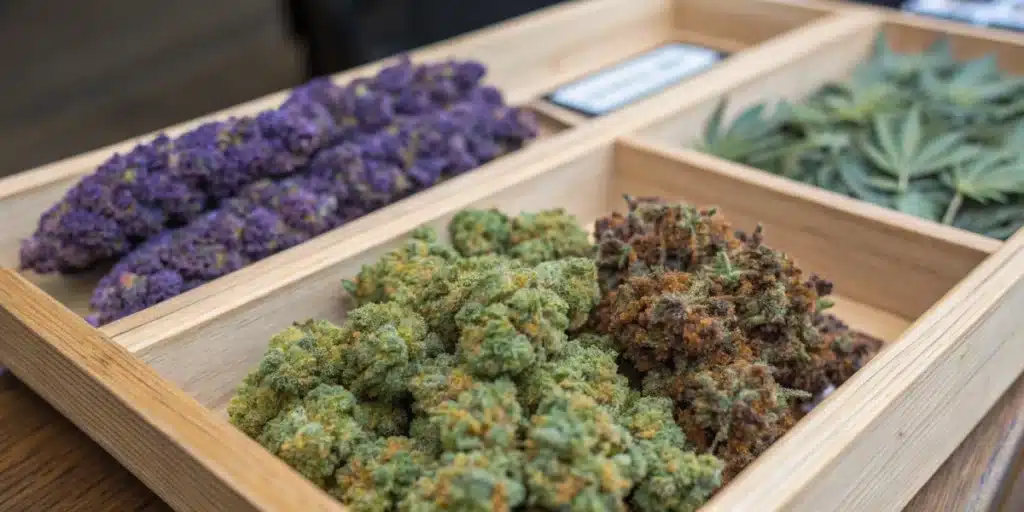
How Long Do THC Effects Last for Muscle Relaxation?
The duration of THC’s effects varies depending on several factors, including the method of consumption. For example, smoking or vaping typically produces effects that last between two to four hours. Edibles, however, can provide relief for six to eight hours, making them ideal for extended muscle relaxation.
Body chemistry also plays a role. Individuals with faster metabolisms may process THC more quickly, reducing the length of its effects. In contrast, those with slower metabolisms may experience prolonged relief. It’s important to experiment with different methods and dosages to find what works best for your needs.
THC Muscle Relaxant – Consumption Method and Duration
Smoking and vaping are popular for immediate relief but come with shorter durations. These methods are ideal for quickly alleviating muscle tension during acute episodes. However, users seeking long-lasting effects may prefer edibles or tinctures.
Edibles provide a slower onset, usually taking 30 minutes to two hours to kick in, but they offer extended relief. Tinctures strike a balance by delivering faster effects than edibles while lasting longer than smoking or vaping.
THC Muscle Relaxant – Other Factors Affecting Duration
Several factors influence how long THC remains effective, including body weight, tolerance, and the presence of other cannabinoids. Products with a higher concentration of THC typically provide stronger but shorter-lasting effects.
Additionally, combining THC with other cannabinoids like CBD can modulate its duration and intensity. Some users report that this combination results in a more balanced experience, reducing the risk of psychoactive side effects.
FAQs
Can THC help with chronic muscle conditions?
Yes, THC has been shown to be effective in managing chronic muscle conditions such as multiple sclerosis and fibromyalgia. Its ability to reduce pain and muscle spasms can improve the quality of life for many patients.
Is THC legal for medical use?
The legality of THC varies depending on your location. In some regions, medical marijuana is fully legal and accessible with a prescription. In other areas, THC may still be restricted or illegal. Always check your local laws before using THC products.
What are the side effects of using THC as a muscle relaxant?
Common side effects include dry mouth, increased appetite, and drowsiness. Some users may also experience anxiety or paranoia, particularly at higher doses. Starting with a low dose can help minimize these effects.
Can I use THC alongside other muscle relaxants?
It’s best to consult a healthcare professional before combining THC with other muscle relaxants or medications. THC may interact with certain drugs, potentially enhancing or diminishing their effects.
What is the best way to consume THC for muscle relaxation?
The best method depends on your preferences and needs. For fast relief, smoking or vaping is effective. For long-lasting effects, edibles or tinctures may be better options. Experimenting with different products can help you find what works best.


